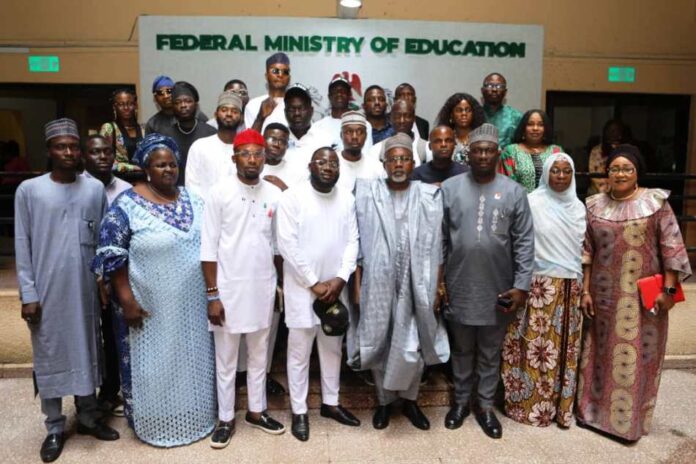Honourable Minister of State for Education, Dr. Yusuf Tanko Sununu, has reaffirmed the government’s dedication to upholding the validity of certificates earned from accredited and recognized institutions. This statement addresses concerns regarding the legitimacy of academic qualifications obtained from institutions in Benin, Togo, and other neighboring countries.
In his address, Dr. Sununu emphasized the pivotal role of education in national development and poverty alleviation. “Education is key to eradicating poverty,” he asserted. “We must ensure that qualitative education guarantees effective service delivery to all Nigerians, which we refer to as educational security.” He stressed the need for a robust education system to nurture individuals with strong critical thinking, skills, knowledge, and ethical values.
Dr. Sununu clarified that the recent suspension of evaluation and accreditation for degrees from neighboring countries does not affect certificates from duly accredited institutions. “The crucial factor is the accreditation of the institution issuing the certificate,” he stated. “This ensures that the certificate adheres to established standards and is valid for employment, further education, or other purposes.”
Addressing the challenges posed by the global economic crisis, including fluctuations in the naira-dollar exchange rate, Dr. Sununu assured that the Ministry remains committed to timely scholarship payments and effective budget management. “We have commenced implementation for 2024 and are working to ensure our budget remains sustainable throughout the year,” he confirmed.
Dr. Sununu also highlighted the importance of adhering to bilateral agreements for students studying abroad, such as those in Morocco, and emphasized that any issues should be resolved directly with the respective institutions. Additionally, he noted that the revised Student Loan Act underscores the President’s commitment to expanding access to quality education and providing comprehensive support to students, including funding for skills development.
Earlier, Comrade Juwon Ojo Fayemi, President of the National Association of Nigerian Students in Diaspora (NANSID), addressed critical issues impacting Nigerian students abroad. Fayemi reported severe challenges, including unforeseen medical expenses, discrepancies in scholarships, and accommodation shortages. He emphasized the urgent need for intervention and support, citing ongoing issues with certificate authentication from the Benin Republic.
Fayemi advocated for the recognition of NANSID as a key stakeholder in resolving these issues and urged the Honourable Minister to act promptly.
In conclusion, Dr. Sununu reiterated the government’s unwavering commitment to maintaining the integrity of the educational system and ensuring that all Nigerian students, both domestically and internationally, have the opportunity to thrive.
Boriowo Folasade
Director, Press and PR






